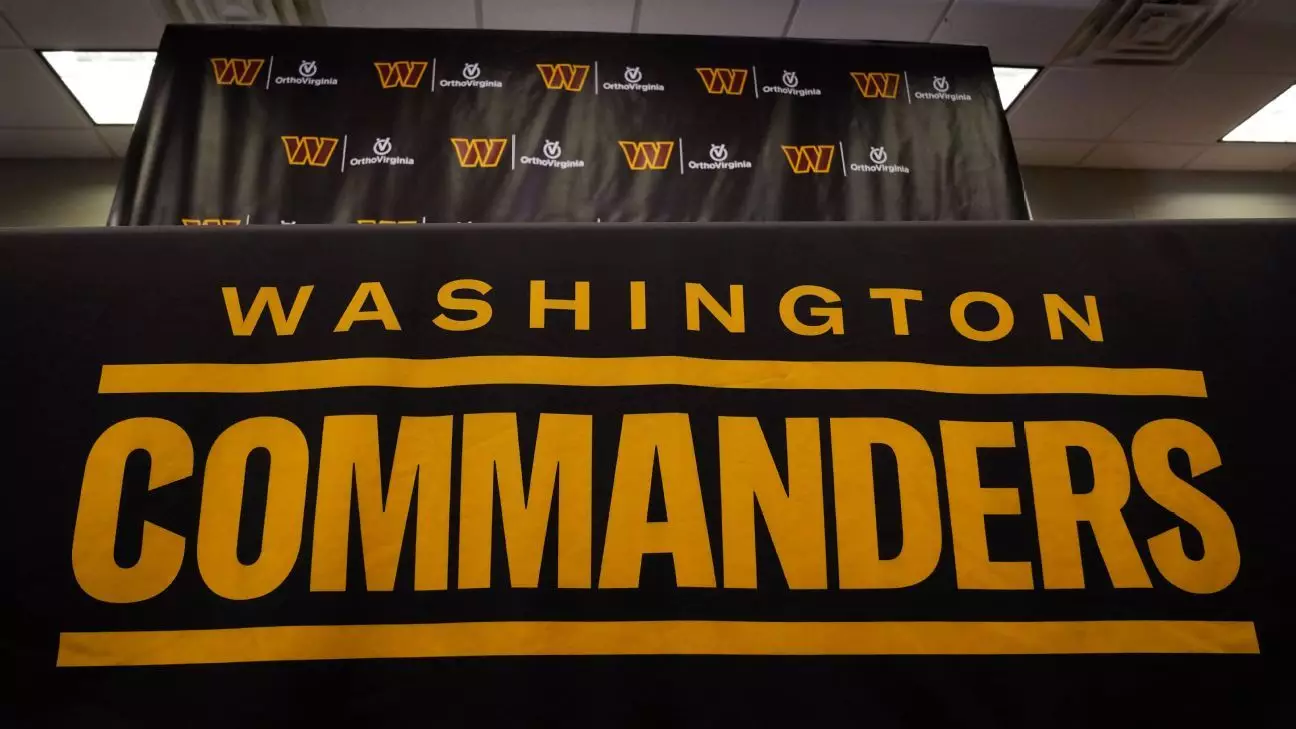The Washington Commanders have long been entwined with the history of sports in the nation’s capital, yet their return to the District of Columbia is facing significant uncertainty. As government officials and team executives initially expressed optimism about relocating back to RFK Stadium, developments over the past week have muddied these waters. A crucial provision for transferring approximately 170 acres of federal land to the district was unexpectedly omitted from a recent spending bill in Congress. The journey towards establishing a new stadium, a goal envisioned by many, now hangs in the balance.
The latest spending bill, which aims to fund the government, has stirred concern among stakeholders. Initially, the bill included a provision for land transfer that insiders believed would pave the way for the Commanders to reclaim their historical home. However, this critical element’s exclusion raises questions about the potential timelines for the team’s future venue considerations. If the current bill does not pass, the hope remains that Congress could resurrect the land transfer in subsequent legislation next year, although any delay could extend the Commanders’ existing struggles in its current stadium situation.
D.C. Mayor Muriel Bowser has been proactive in clarifying misconceptions regarding the bill’s contents, especially amidst misleading claims circulating on social media. In response to erroneous statements regarding significant funding allocated for a new stadium, she emphasized that no federal dollars are earmarked for this venture. Instead, the focus of the bill lies on the resolution for transferring land control away from federal oversight. Bowser’s declaration not only corrects public sentiment but also highlights the government’s intent to rejuvenate the RFK site rather than link it directly to stadium development.
The RFK Stadium holds a place of historical significance within the fabric of D.C. sports. Between 1961 and 1996, the Commanders achieved notable successes, including three Super Bowl victories, captivating the hearts of fans and establishing a legacy that echoes through decades. The potential return to this iconic location is tied deeply to nostalgia and the desire for bringing sports back into the city’s core. This longing comes with a reality check, as the team currently occupies a venue in Landover, Maryland, where they have called home since 1997.
Ownership under Josh Harris and the team’s administration has shown interest in a permanent return to D.C., yet challenges persist. The existing lease on the RFK site is limited to a mere 14 years, raising concerns about whether any substantial investment in infrastructure could be justified. In contrast, the Commanders already own land in Landover, where they can feasibly design and build a stadium that aligns with their current operational strategy. This dilemma places the team at a crossroads, where they must weigh historical prestige against practical and financial considerations for the future.
The process of navigating the return of the Commanders entails more than just logistics; it also involves political maneuvering and community engagement. The required governmental approvals and community interests intersect significantly in shaping the decision-making process. Mayor Bowser’s commitment to addressing blight around the RFK site underscores the potential broader community benefits of revitalization efforts. The mayor’s focus on urban development and socio-economic rejuvenation reflects a desire to integrate the stadium project into a broader vision for the district.
Yet, the fears of displacement and disruption remain a reality for some residents. Balancing the desires for a new stadium with the needs of locals presents a challenging dynamic that relies on thoughtful governance and stakeholder collaboration. Public sentiment toward funding and the viability of investing government resources into such ventures often varies, demanding a nuanced approach to potential funding avenues.
As the Commanders continue to explore their potential paths, uncertainty looms large. The prospects for a new stadium and return to D.C. hinge on the unfolding political landscape, community engagement, and strategic decision-making by the team’s leadership. With an apparent desire from key public figures for the team to flourish within the heart of Washington, the tension between nostalgia and practical yields a complex tapestry of aspirations and realities.
As it stands, whether the Commanders will find their way back to RFK Stadium—or chart a different course entirely—remains to be seen. Stakeholders will have to remain vigilant and responsive to shifts in legislation, community needs, and broader sports dynamics as discussions around the future embolden both optimism and skepticism. The dream of reviving the Commanders’ legacy in D.C. could still materialize, but it will require negotiation, strategic foresight, and a collective will to make it a reality.


Leave a Reply